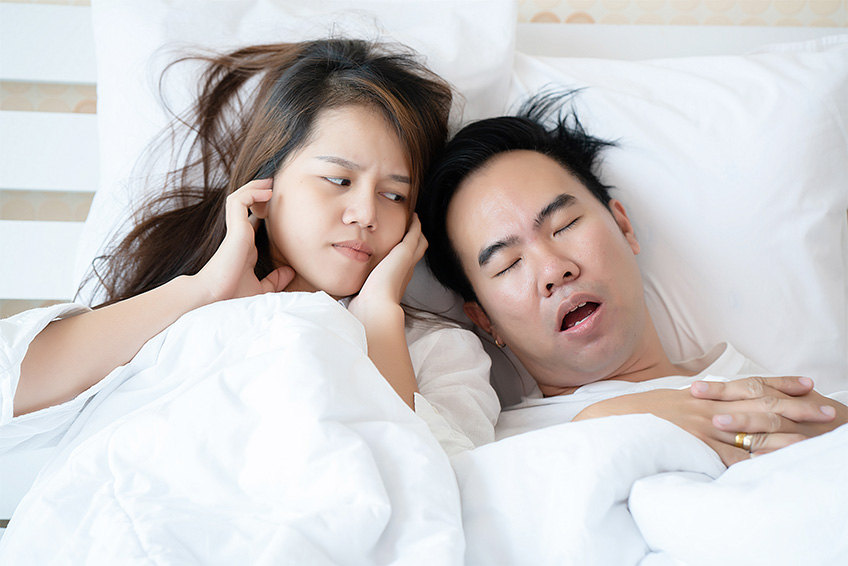Asthma has been linked to a higher risk of sleep apnea.
According to research, there may be a connection between asthma and sleep apnea. It appears that individuals who suffer from asthma are generally at an increased risk of developing obstructive sleep apnea. Read on to find out more about the link between the two breathing issues, and how we can help if you have sleep apnea…
What is the connection between asthma and sleep apnea?
The Wisconsin Sleep Cohort Study, which was launched in 1988 and led by a team at William S. Middleton Veteran’s Hospital and the University of Wisconsin School of Medicine and Public Health, performed long-term tracking of over 500 adults, of whom around 15 percent had asthma. The participants of the study were between the ages of 30 and 60 years old, and were asked to complete general health questionnaires, as well as overnight in-laboratory sleep tests every four years. At the first four-year check-up, the researchers found that more than 25 percent of the patients who had asthma has also developed sleep apnea, while just 16 percent of the non-asthmatic patients had developed the condition. Over the whole period of study, the researchers found that patients with asthma had an almost 40 percent greater chance of developing sleep apnea than those who were asthma-free. They also noted that the longer an individual had asthma, the greater their risk of developing obstructive sleep apnea.
What are the symptoms of asthma?
Asthma is a condition which causes the airways to narrow and swell, making it difficult to breath. Some of the symptoms of the condition include shortness of breath; chest pain and tightness; wheezing; difficulty sleeping; and coughing or wheezing attacks.
What are the symptoms of obstructive sleep apnea?
Obstructive sleep apnea is also a breathing disorder. The disorder causes breathing to repeatedly stop and start during sleep. Some of the most common symptoms include snoring; episodes where breathing stops during sleep; gasping for air during sleep; headaches (particularly on waking in the morning); daytime sleepiness; difficulty concentrating; and mood problems like irritability.
How can we help?
If you are asthmatic and you suspect that you may have developed sleep apnea, we recommend that you come in and see us. We take a holistic approach to treatment and provide solutions that help to restore and improve overall wellness.
If you are diagnosed with a sleep breathing disorder, treatment may include sleep position training, as well as lifestyle guidance like weight reduction and smoking cessation. In some cases, oral appliance therapy may be effective, while continuous positive air pressure (CPAP) is also a common treatment for breathing disorders. The treatment that suits you will depend on your particular case, which is why it is important to begin with a consultation — this gives you the opportunity to discuss your concerns in detail and for Dr Acker and his team to address any questions you might have.
To make an appointment, please don’t hesitate to get in touch. We are also currently offering free Zoom sessions — simply fill out our sleep questionnaire to be eligible for a consult.
To find out more about the services that we offer at Elite Dental of Staten Island, please have a look here. Our team is dedicated to providing world-class care and patient information. We look forward to helping you improve your overall health.
